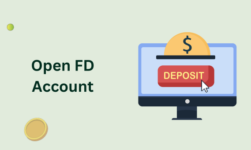
Exchange-traded funds (ETFs) are investment tools that are traded on stock exchanges, similar to stocks. They provide diversification by holding a mix of stocks, bonds, or commodities. Unlike mutual funds, which are bought and sold only at the end of the day at their net asset value (NAV), ETFs can be traded throughout the day at current market prices, offering investors the opportunity for real-time trading and strategy.
How do exchange-traded funds (ETFs) work?
- Composition: An ETF consists of a collection of securities, such as stocks, bonds, or commodities, depending on the index it tracks.
- Trading: ETFs are traded on stock exchanges just like individual stocks, allowing for buying and selling throughout the trading day. Unlike mutual funds, exchange traded fund may trade at a premium or discount to their NAV, reflecting real-time market conditions.
Selecting the right exchange-traded funds (ETFs)
- Benchmark index: Choose an ETF based on the index it tracks. For instance, a Nifty 50 ETF would be appropriate for those looking to invest in the top 50 companies in India. The index impacts the ETF’s risk and reward profile.
- Investment objective: Decide if you want growth, market tracking, or intra-day liquidity. ETFs might be suitable for those preferring passive investments or needing real-time trading options.
- Investment horizon: Align ETFs with your investment timeline. Short-term goals may require more stable ETFs, while long-term goals could accommodate more volatile options.
- Market conditions: Evaluate how current market conditions may affect the exchange-traded fund (ETF) performance.
- Tracking error: Assess the ETF’s tracking error, which measures how closely the ETF’s performance matches its benchmark index. A lower tracking error means better alignment with the index performance.
Benefits of exchange-traded funds (ETFs)
- Diversification: ETFs provide broad market exposure with a single investment, reducing dependence on individual stock performance. For example, a Nifty 50 ETF includes the 50 stocks listed in the Nifty 50 index.
- Cost-effectiveness: ETFs usually have lower fees compared to actively managed mutual funds.Their passive management style aims to mirror index performance instead of trying to outperform it, resulting in cost efficiency.
- Transparency: ETFs disclose their holdings daily, offering clear insights into their investments. This transparency is in contrast to mutual funds, which update their holdings less frequently.
- Liquidity: ETFs are traded on exchanges, allowing instant buying and selling during market hours. This intra-day liquidity supports various trading strategies and offers flexibility.
- Flexibility: ETFs encompass a wide range of asset classes, including equities, bonds, and commodities. They provide easy access to different markets and sectors.
- Performance advantage: ETFs minimize trading costs and managerial errors, efficiently providing broad market exposure. Their passive management reduces the risk of underperformance due to fund manager decisions.
- Ease of trading: Investing in ETFs is straightforward, similar to buying shares through a brokerage account. This simplicity makes exchange-traded funds (ETFs) accessible for both new and experienced investors.
Types of exchange-traded funds (ETFs)
- Broad-market ETFs: These exchange-traded funds (ETFs) track specific broad-market indices, such as the Nifty 50 or BSE Sensex, and aim to replicate the index’s performance.
- Gold ETFs: These funds track the performance of gold, offering an easy way to invest in the metal without needing to store it physically.
- Bond ETFs: These invest in bonds and aim to provide regular income along with stability.
- Sector ETFs: These funds target specific sectors of the economy, like technology or healthcare, and follow the performance of indices related to those sectors.
- Other ETFs: Some exchange-traded funds (ETFs) are based on indices that follow specific investment strategies, such as value or momentum.
Who should invest in exchange-traded funds (ETFs)?
- New investors: Exchange-traded funds (ETFs) may be suitable for those who want broad market exposure through a single investment.
- Seasoned investors: Experienced investors seeking diversification or specific asset classes might benefit from exchange-traded funds (ETFs).
- Passive investors: Individuals who prefer investments that mirror market movements rather than active management may favor exchange-traded funds (ETFs).
- Liquidity seekers: Investors needing intra-day liquidity and flexibility may find exchange-traded funds (ETFs) advantageous.
- Cost-conscious investors: ETFs typically offer lower expense ratios compared to active mutual funds, making them a cost-effective investment option.
Conclusion
Exchange-traded funds (ETFs) offer a flexible and affordable investment option for a diverse range of investors.ETFs spread investments across stocks, bonds, or commodities, reducing reliance on any single stock’s performance. They are traded on stock exchanges, allowing for daily trading and real-time market engagement.
With lower expense ratios, transparency, and broad market exposure, ETFs are a valuable alternative to actively managed mutual funds. Investors can select ETFs based on their financial goals, investment timeline, and current market conditions. Whether you’re new to investing, aiming for diversification, or seeking cost efficiency, ETFs provide a balanced approach to managing risk and reward and support informed investment decisions.
Mutual Fund investments are subject to market risks, read all scheme related documents carefully.





